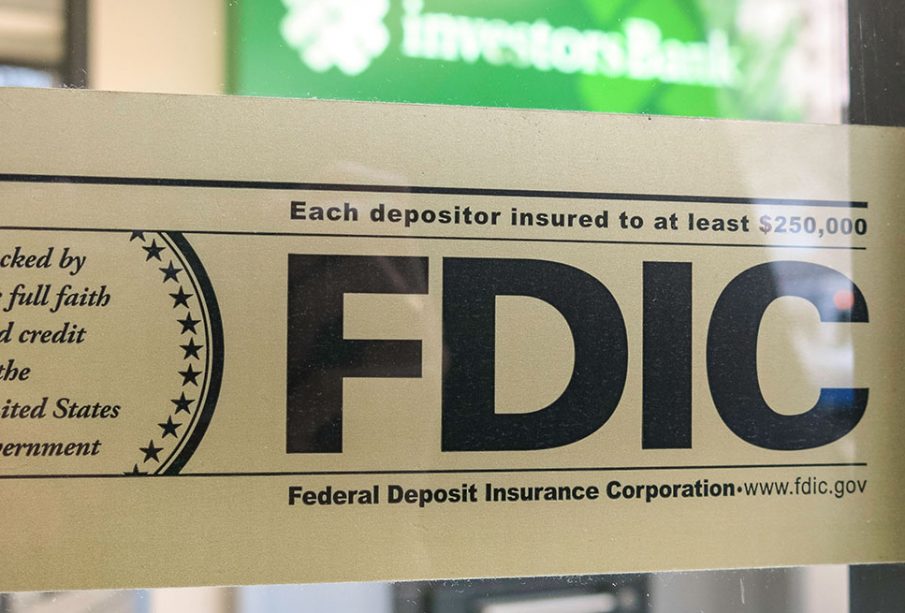How the FDIC protects your money

Given the financial damage triggered by the coronavirus pandemic, it’s understandable that you might have issues about the security of your money parked at the bank. The bright side is that if your cash is deposited at a federally insured bank, it is safeguarded by the Federal Deposit Insurance Coverage Corp.
“An FDIC-insured account is the safest location for consumers to keep their money,” the FDIC said in a press statement to reassure depositors after the coronavirus lockdowns started.
What is FDIC insurance?
The FDIC was produced in 1933 to protect customers when banks stop working and are required to close their doors. The FDIC guarantees approximately $250,000 per depositor, per FDIC-insured bank, per ownership classification.
Throughout the Great Anxiety, insurance coverage for banks was not available. So when banks stopped working, Americans lost their cost savings. Now when banks fail, the FDIC steps in to secure depositors.
“Bank failures are unusual,” states Mark Hamrick, Bankrate’s senior economic expert, and Washington bureau chief. “But when they happen, affecting covered institutions, FDIC protection is very important.”
Which organizations are covered by FDIC insurance coverage?
The large majority of banks, including online banks, use deposit consumers’ FDIC insurance.
Anand Talwar, deposits and customer method executive at Ally Bank, says online banks are no various from other federally guaranteed banks.
“If the bank is a member of the FDIC, like Ally Bank, their deposits are covered,” Talwar says. “We simply don’t have brick-and-mortar branches.”
It is unusual for a bank not to have FDIC insurance, however, there are exceptions. Bank of North Dakota, for instance, is not FDIC-insured. Rather, it is backed by the state of North Dakota.
Credit unions are regulated differently from banks and have their own federal deposit insurance through the National Cooperative Credit Union Share Insurance Fund. The fund was created by Congress in 1970 to insure deposits in member cooperative credit union.
It is administered by the National Credit Union Administration, or NCUA, which charters, regulates, and monitors federal credit unions. The insurance is comparable to what the FDIC offers, with a $250,000 cap for each account and owner.
What FDIC insurance coverage covers
FDIC insurance covers standard bank deposit products, including examining accounts, savings accounts, certificates of deposit, Negotiable Order of Withdrawal (NOW) accounts, and money market bank account.
The insurance coverage covers up to $250,000 in deposits, per depositor, per FDIC-insured bank, per account ownership classification. If an account holder has more than $250,000 on deposit across a number of accounts at a single bank, in her name alone, anything over $250,000 is not insured.
A private account is guaranteed separately from a joint account. So, a $500,000 CD owned by 2 joint account holders would be completely guaranteed due to the fact that each account holder is guaranteed for approximately $250,000.
FDIC insurance coverage also protects interest earnings, as long as the principal and interest integrated do not surpass the $250,000 cap. If you have $248,000 in a CD account that has earned $2,000 in interest, you are totally covered because your account does not go beyond the insurance coverage limit.
However, if you have $175,000 in a savings account and $200,000 in a CD at the exact same bank, in your name alone, $125,000 is uninsured.
What the FDIC doesn’t cover
The FDIC does not insure investments. Even if you buy stocks, bonds, shared funds, annuities, and life insurance policies through a bank, your cash is not safeguarded. The FDIC doesn’t cover the contents of your safe-deposit box either.
Payment providers, such as PayPal and Venmo, likewise do not get approved for FDIC insurance, as they are not banks. There are some exceptions. PayPal mentions on its site that a person of its items, PayPal Money Plus, deposits funds in FDIC-insured organizations.
PayPal-owned Venmo is not a bank and would not qualify, Hamrick notes. “These payments-processing firms are pipelines through which cash passes, not banks,” he says.

How to ensure all of your deposits are guaranteed
You can make certain all your deposited monies are guaranteed by keeping your money in different ownership classifications.
For instance, joint account ownership provides more security than single account ownership since each account owner is guaranteed approximately $250,000. So, if a couple had $500,000 in joint savings at the same bank, they would be guaranteed by the FDIC.
Trusts also pay for more defense. If you have a revocable trust, as numerous as 5 recipients are insurable for up to $250,000 each.
Spreading your money around to various FDIC-insured banks is another way to take full advantage of insurance coverage security. There are bank networks that can do that for you.
How the FDIC pays you back after a bank stops working
Depositors do not need to submit insurance coverage claims to recoup their deposits. Nor do they need to obtain deposit insurance coverage when they open a checking account at an FDIC-insured institution.
When a bank fails, the FDIC pays depositors by giving them an account at another insured bank in the amount equivalent to what they had actually at the stopped working bank, up to the insurance limits. Or, it merely issues the depositor a check.
This takes place the next business day or within a couple of days. In some cases, the FDIC needs to evaluate an account to identify how much is covered prior to it repays the account holder.
It can take a couple of years to recuperate deposits that exceed the insurance coverage limits. As the FDIC sells a failed bank’s possessions, it issues regular payments to depositors. Funds that exceed insurance limitations are paid back on a cents-on-the-dollar basis.
Bottom line
Consumers can rest simple if their cash is transferred at FDIC-insured banks or federally insured cooperative credit union. For those with deposits in excess of $250,000, it’s crucial to know how to safeguard all of it.
If you’re not sure whether all your deposits are FDIC-insured, get with your bank representative or use the FDIC’s Electronic Deposit Insurance Estimator ( EDIE) and go into information about your accounts.






